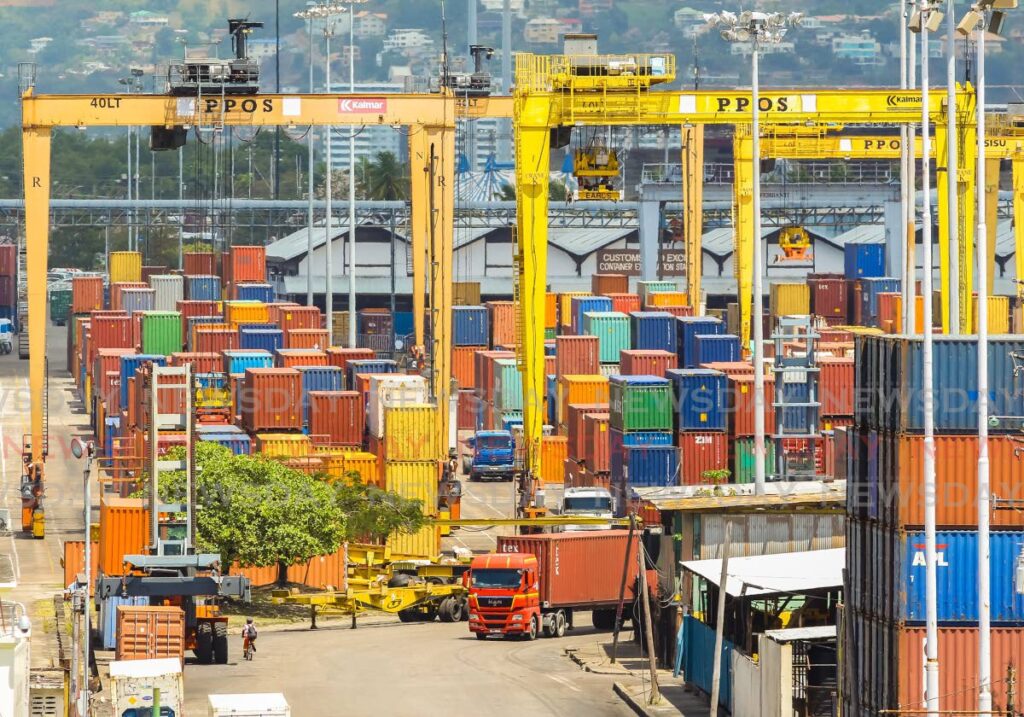Imbert: Scanning more at ports can slow trade

FINANCE Minister Colm Imbert has boasted that this country examines far more shipping containers coming into the country than the US and Europe, and suggested that scanning more would be impractical for trade.
Imbert issued a statement on Saturday in response to "business spokespersons who have complained about the current level of examination of containers by Customs."
Imbert's statement was titled: Trinidad and Tobago scans five times more containers than the USA and 10 times more than the EU.
He wrote, "If we were to move to 50 per cent or 100 per cent image scanning and/or physical inspection of shipping containers, trade could grind to a halt, with severe adverse effects on commerce," Imbert wrote.
The minister's statement comes after revelations of major apparent deficiencies of the Customs and Excise Division, during a sitting of a Parliament Joint Select Committee on national security, on Wednesday.
There, it was revealed that fewer than 4,000 shipping containers of the 23,000 imported into TT between January and August, were inspected.
It was also revealed that there were no scanners working at the port, meaning all inspections were being done manually. The police claim that the majority of illegal guns, particularly assault rifles, are imported through legitimate ports and want closer scrutiny of shipping containers.
Deputy comptroller Yasmin Harris said four scanners are functioning at transit sheds at Piarco. Tens of thousands of guns, however, have been seized with the Strategic Security Agency reporting 8,154 (valued at $100 million) recovered in 2017, 9,389 ($119 million) in 2019 and 11,043 ($144 million) last year.
A day after the Parliament hearing, TT Manufacturers Association president Tricia Coosal issued a statement, saying the organisation "(was) alarmed at the reports of the JSC."
She wrote, "Traditionally, TTMA has lobbied for greater efficiency on the Port and has, in the past, welcomed the introduction of scanners to aid in this efficiency.
"The reports of these scanners not working are concerning and its negative impact on the ease of doing business cannot be denied. There is also the challenge of many illegal items finding their way into the country and into the hands of unscrupulous persons.
"Importantly as well is the government not getting their due revenues based on the evasion of proper customs duties to be applied on goods."
Imbert also suggested customs staff were unwilling to work with the necessary technology, and drew reference to protests by the Public Services Association regarding use of the scanners "on the grounds that they would cause radiation poisoning of customs officers, leading to decreased virility."
"Reluctance by staff to adopt modern technology," he wrote, "remains a real, not virtual, challenge."
"These pertinent facts aside, the Minister of Finance is acutely aware of the very harmful impact of crime and criminal elements, and continues to do all that is legal and within his power to ensure efficiency and focus in the Customs and Excise Division."
The Port of Port of Spain, in a separate media release on Friday, said its fixed scanner at the port is fully operational.
"The Port of Port of Spain is the only seaport in Trinidad and Tobago with a fully operational fixed container scanner," it said.
"The fixed scanner, a $25 million Nutech Linear Accelerator X-Ray Scanner and Detection System, was acquired via grant funding from the People's Republic of China and commissioned on September 12, 2014."

Comments
"Imbert: Scanning more at ports can slow trade"